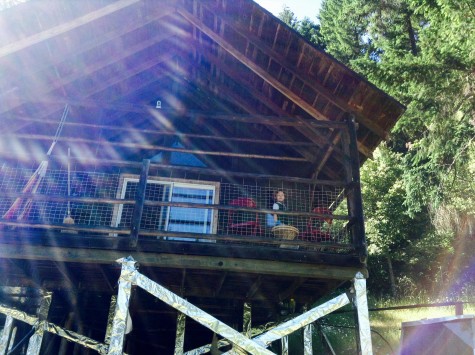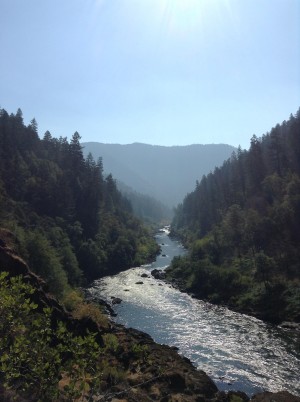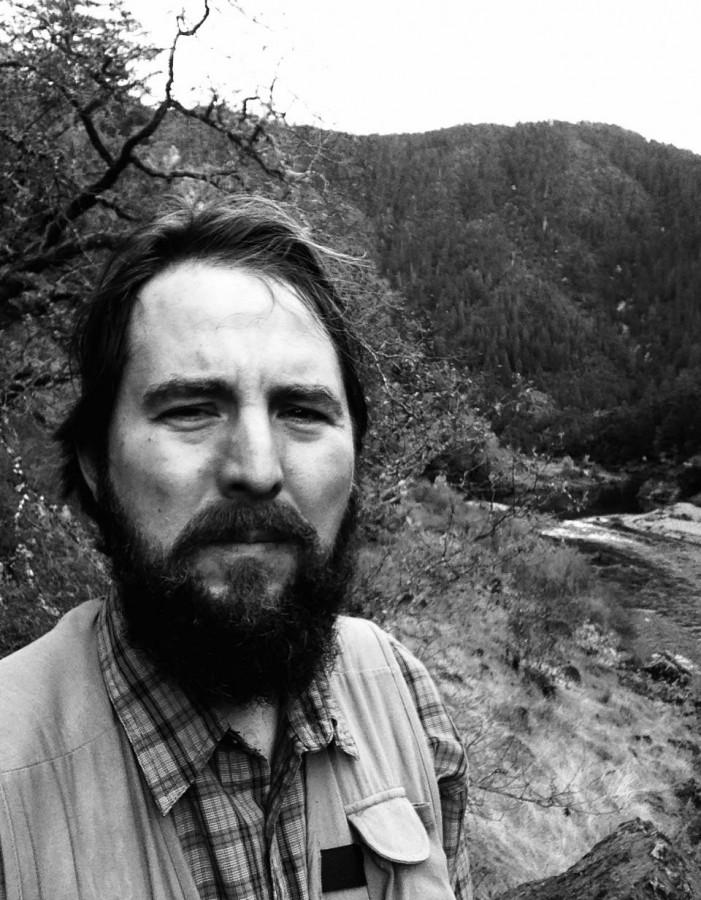Seven months of solitude: English professor writes in wilderness
December 7, 2015
Growing up in rural Montana and a mountain man by nature, Joe Wilkins, associate professor of English at Linfield, felt right at home living and writing above the Rogue River in the Klamath Mountains.
Wilkins spent last summer and fall with no electricity or neighbors, and two hours away from any city. He applied for and was selected for a wilderness writing residency at the remote Dutch Henry Homestead because of his interest in landscape and place.
“There isn’t any [residency] like the Dutch Henry Homestead,” he said.

A typical summer day for Wilkins and his family consisted of waking up, making oatmeal or eggs, going outside to the meadow, hiking to the river or creek, relaxing in the afternoon, writing in the evenings and playing cribbage with his children, Walter and Edith, while his wife, Liz, played the guitar.
“We tried to make it like an outdoor school,” he said.
Every 10 days or so, they would make the four-hour round trip to Grants Pass, to buy groceries and answer a few emails.
The isolation of the cabin took its toll, at times, on Wilkins and his family, who normally are surrounded by neighbors and friends at their home in McMinnville.
“It was hard for them and for all of us missing people,” he said.
After his family returned home at the beginning of the school year, Wilkins spent six hours each day writing.
“It wasn’t really about finishing anything, it was more about just having the time and space to write,” he said, meaning he could finish and start projects, including his newest.
“(It’s) a memoir about family and landscape, especially about childhood and how landscapes imprint us and how we carry them with us whether we know that or not,” he added.
Wilkins is one of many writers who have lived and worked at the cabin. Oregon writer John Daniel was there and Eric Greenwell plans to stay there this winter.

For Wilkins, the residency was a reminder of how much landscape and wild places matter to him.
“There is so much there … we often think of it as desolate but it’s not – it’s rich, it’s full, it’s abundant,” he said.
Surrounded by Douglas firs and mountains, Wilkins found the solitude crucial to his writing and creative process.
“The space, the isolation allows you to go both inward and outward,” he said. “It’s a place where you can really go inside (yourself) and really spend time with your own thoughts.”

